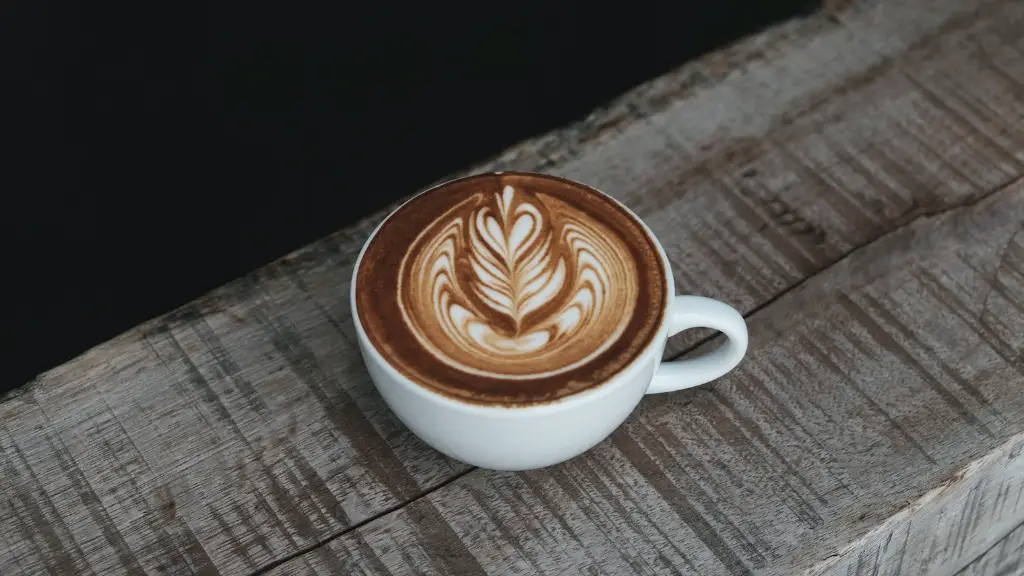Background Information
Decaf coffee is defined as coffee that has been decaffeinated, or had its caffeine content removed. In this process, the caffeine is extracted from the coffee beans using a specific type of solvent, such as methylene chloride. Upon completion, the beans are left with around 3%-5% of their original caffeine content.
Beta blockers are a type of prescription medication that is used to treat a number of medical conditions, including high blood pressure, chest pain, and irregular heartbeats. They interact with the body’s beta-adrenergic receptors, which are found in the heart and peripheral vessels, to reduce the heart rate and lower blood pressure levels.
Expert Perspectives
The general consensus among medical professionals is that consuming decaf coffee while taking beta blockers should be safe. However, it is important to note that the caffeine content of decaf coffee can still interact with the beta-adrenergic receptors in the body and thus could potentially counteract the effects of the medication. As such, it is recommended that people taking beta blockers speak with their doctor before consuming decaf coffee.
In addition to this, some experts recommend that people taking beta blockers limit their caffeine intake from all sources, including decaf coffee. This is due to the fact that it may be harmful to those with certain pre-existing conditions, such as high blood pressure or a history of stroke.
Analysis
Despite the potential risks associated with the consumption of decaf coffee while taking beta blockers, it is possible to mitigate these risks and still enjoy a cup of decaf. For instance, some studies suggest that moderate consumption of decaffeinated coffee can actually help to reduce the risk of heart disease and stroke due to the anti-inflammatory effects of some of its components.
Moreover, it is important to note that the caffeine content of decaf coffee is typically much lower than that of regular coffee, so it is unlikely to be counteracted by the medication. Thus, moderate consumption of decaf coffee should be safe for those taking beta blockers.
Effects on the Body
The consumption of caffeine, even in small amounts, can have a number of beneficial effects on the body. For instance, caffeine can stimulate the central nervous system and help to improve alertness and cognitive performance. It can also increase the body’s metabolism and help to burn fat more efficiently, which can be beneficial for weight management.
However, it is important to note that caffeine can also have adverse effects on the body when consumed in excessive amounts. This includes increased heart rate, insomnia, and headaches. Additionally, when taken in large doses, it can cause a decrease in the efficacy of beta blockers.
Things to Consider
As previously mentioned, it is important to speak with a doctor before consuming decaf coffee while taking beta blockers. This is to ensure that the caffeine content of the coffee will not interact with the medication and lead to any adverse effects. It is also recommended that people taking beta blockers limit their caffeine intake from all sources to reduce any potential risks.
Finally, it is important to note that everyone is unique and the effects of caffeine will vary from person to person. As such, it is essential to exercise caution and pay attention to any potential side effects, such as dizziness or increased blood pressure, when consuming caffeinated beverages.
Caffeine and Energy Drinks
Most energy drinks contain high amounts of caffeine, which can be detrimental to those taking beta blockers. This is due to the fact that the caffeine in these drinks can interact with the medication and render it ineffective. Additionally, the potential adverse effects of caffeine in energy drinks, such as increased heart rate, can be especially dangerous for those taking beta blockers.
Therefore, it is important to note that it is not recommended to consume energy drinks when taking beta blockers. Instead, it is best to stick to beverages with low or no caffeine, such as herbal tea or water.
Dietary Considerations
It is also important to note that foods that contain caffeine, such as chocolate or certain types of ice cream, should also be avoided when taking beta blockers. Additionally, foods that are fried or high in fat, such as french fries or processed meats, can also be detrimental to those taking the medication.
Moreover, it is important to consult a doctor before making any drastic dietary changes. This is to ensure that the changes are appropriate for a person’s individual health needs and that any potential risks are taken into account.
Alternative Beverages
For those looking to cut down on their caffeine intake while taking beta blockers, there are a number of alternative beverages available. For instance, herbal teas are caffeine-free and can still provide the same soothing effects of regular tea. Additionally, green tea and white tea, which traditionally have low levels of caffeine, can also provide a refreshing alternative.
Moreover, certain types of decaffeinated coffees, such as La Colombe Draft Latte, are available as an alternative to regular coffee. These types of beverages can provide a similar taste to regular coffee, but with significantly less caffeine.
Drinking Habits
It is essential for people to understand the impact that their drinking habits can have on their overall health and wellbeing. As such, rationally limiting the consumption of caffeinated beverages, such as coffee and energy drinks, is important for those taking beta blockers. This can help to ensure that the medication is not rendered ineffective due to the interaction of caffeine with the body’s beta-adrenergic receptors.
However, it is important to note that everyone is unique and has different needs. Thus, it is essential to listen to one’s body and take into account one’s individual health needs when deciding whether or not to consume caffeine.
Conclusion
In conclusion, the consumption of decaf coffee while taking beta blockers should be safe for most people. However, it is essential to speak with a doctor before consuming any type of caffeinated beverage. This is to ensure that the caffeine content of the beverage will not interact with the medication and lead to any adverse effects. Additionally, it is important to exercise caution and pay attention to any potential side effects when consuming caffeine.


